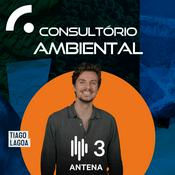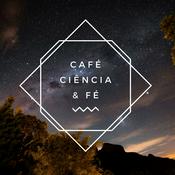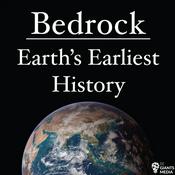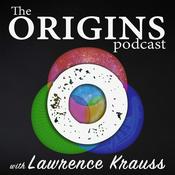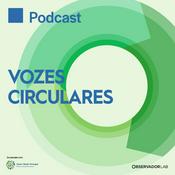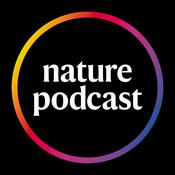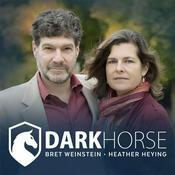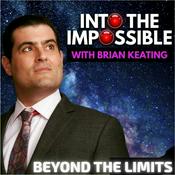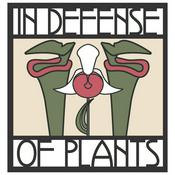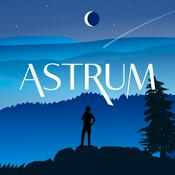339 episódios

Your outdoor adventures can now collect crucial data for conservation, too
23/12/2025 | 51min
Gregg Treinish didn't start out as an outdoor enthusiast, but found solace and purpose in nature during his youth. After years of enjoying the outdoors, he was left feeling a need to give something back to the world. He found fulfillment by using his passion for outdoor adventures to gather critical data that researchers need for conservation and scientific research. That's how his nonprofit organization, Adventure Scientists, came to be. "We harness the collective power of the tens of thousands of people that are outside every day — who love the outdoors and have a passion for exploring the outdoors — and we give them real scientific missions that they can do while they're out there that benefit conservation," Treinish says. The Mongabay Newscast is available on all major podcast platforms, including Apple and Spotify, and previous episodes are also accessible at our website's podcast page. Please take a minute to let us know what you think of our podcast, here. Image Credit: Gregg Treinish in the Oakavango. Photo courtesy of Adventure Scientists ——— Timecodes (00:00) From "at-risk-youth" to conservation professional (19:03) Current initiatives and future plans (26:25) Studying killer whales (29:15) Tracking white bark pine (32:12) Antibiotic resistance research (35:55) Empowering people to make an impact

Shark is on the menu for millions of Brazilians, but few know
15/12/2025 | 41min
Mongabay senior editor Philip Jacobson joins Mongabay's podcast to discuss a two-part investigation published this year in collaboration with the Pulitzer Center about how state governments in Brazil have been procuring shark meat — which is high in mercury and arsenic — served to potentially millions of schoolchildren and thousands of public institutions. With Mongabay's Karla Mendes and Pulitzer's Kuang Keng Kuek Ser, Jacobson spent a year digging into public databases of government shark meat orders, called tenders. "It's quite widespread," Jacobson says. "We found shark meat tenders in 10 states and shark meat being served or being procured for more than 500 municipalities." Government nutritionists were also found to be recommending shark meat for school lunches because it has no bones, and even when one school official raised concerns about heavy metal contamination in the meat, her concerns were not heeded. Critics' concerns extend beyond vulnerable populations like schoolkids, too, since shark is also on the menus of public institutions like homeless shelters, maternity wards and elder care centers. But since the investigation was released, one lawmaker has called for a parliamentary hearing to discuss the findings. The Mongabay Newscast is available on all major podcast platforms, including Apple and Spotify, and previous episodes are also accessible at our website's podcast page. Please take a minute to let us know what you think of our podcast, here. Image Credit: A blue shark (Prionace glauca). Image courtesy of Ellen Cuylaerts/Ocean Image Bank. —- Timecodes (00:00) Millions of Brazilians fed shark meat (12:33) Impacts from Mongabay's investigation (24:29) Marine related issues flying under the radar (27:13) Why Phil chose investigative reporting (32:40) The GIJN conference

Russ Feingold on the nonpartisan nature of conservation
08/12/2025 | 38min
Bill Gates recently claimed that protecting nature or improving human health is an either-or choice, but former national leaders like Russ Feingold, a retired U.S. Senator, and Mary Robinson, former Ireland President, disagree. As chair of the Global Steering Committee of the Campaign for Nature, a nonprofit organization uniting prominent politicians in support of nature protection, Feingold emphasizes that supporting both nature and people is essential, and that these are not mutually exclusive goals. On this episode of Mongabay's podcast, Feingold discusses the campaign's mission and why he believes nonpartisan conservation efforts are essential. " We need to work as citizens — not as Democrats or Republicans — but as citizens, to say 'Whatever else you think, let's do this together,'" he says. The Mongabay Newscast is available on major podcast platforms, including Apple and Spotify, and all previous episodes are accessible at our website's podcast page. Please take a minute to let us know what you think of our podcast, here. Mike DiGirolamo is a host & associate producer for Mongabay based in Sydney. He co-hosts and edits the Mongabay Newscast. Find him on LinkedIn and Bluesky. Image Credit: Former Senator Russ Feingold. Image courtesy of the Campaign for Nature. —— Timecodes (00:00) Former Senator Russ Feingold (03:48) The Campaign for Nature (08:56) Feingold's connection to nature (14:55) Concerns regarding Indigenous rights in 30x30 (27:13) Thoughts on Bill Gates (29:15) Fighting authoritarianism and oligarchy (33:48) What people can do

Freeing ourselves from cars is simpler (and healthier) than we may think
02/12/2025 | 41min
Sarah Goodyear, Doug Gordon and Aaron Naparstek realized that no one was discussing the many cultural factors that have played a role in humanity's car dependency, or the negative impacts this reliance on motor vehicles has on human health and the planet. So they started their own show to do exactly that, The War on Cars. Gordon joins Mongabay's podcast to discuss just how human society got here — and how we might get ourselves out of it — which is also the subject of a new book he co-authored with Goodyear and Naparstek, Life After Cars: Freeing Ourselves from the Tyranny of the Automobile. "We felt that nobody was really covering the car as this overwhelming determinative force in the life of you as an individual, the life of society and nature, politics, culture, everything," he says. Take a minute to let us know what you think of our audio reporting, which you can do here. The Mongabay Newscast is available on major podcast platforms, including Apple and Spotify, and all previous episodes are accessible at our website's podcast page. Mike DiGirolamo is a host & associate producer for Mongabay based in Sydney. He co-hosts and edits the Mongabay Newscast. Find him on LinkedIn and Bluesky. Image Credit: Cover art for the book 'Life After Cars'. Artwork by Alissa Rose Theodor. Courtesy of Penguin Random House. -------- Timecodes (00:00) The War on Cars (05:48) The unseen impacts of cars (25:30) Imagining 'Life After Cars' (33:42) How to decrease car dependency

Indigenous and local communities regain millions of hectares of land via successful legal effort
25/11/2025 | 39min
Nonette Royo is a lawyer from the Philippines and executive director of The Tenure Facility, a group of "barefoot lawyers" working to secure land tenure for Indigenous, local and Afro-descendant communities across the world. To date, the organization has secured more than $150 million in funding and has made progress in securing land rights covering 34 million hectares (84 million acres) across 35 projects, an area larger than Greece. Royo joins Mongabay's podcast to discuss the organization's success, its recognition as a finalist for the 2025 Earthshot Prize, and why land rights are so crucial both for cultural survival and slowing the pace of global ecological degradation. "This work is really about land tenure, and about land and people. And it is very important because at this point in our world, where we are breaching planetary boundaries, we are still hesitating to invest in the people who protect our land, our forests and our diverse systems," she says. Take a minute to let us know what you think of our audio reporting, which you can do here. The Mongabay Newscast is available on major podcast platforms, including Apple and Spotify. All previous episodes are accessible on the Mongabay website. Mike DiGirolamo is a host & associate producer for Mongabay based in Sydney. He co-hosts and edits the Mongabay Newscast. Find him on LinkedIn and Bluesky. Banner Image: Women of Masaka embark on cassava cultivation. The plantation areas are located in the heart of the community of Mabaka in the Kwango region. Image by Ley Uwera. Courtesy of The Tenure Facility. ---------- Timecodes (00:00) The 'barefoot lawyers' helping secure land rights (06:28) How the legal system can protect nature and rights (10:29) Challenges and successes (15:36) Better mapping tech is helping (27:16) Goals and progress of the Tenure Facility
Mais podcasts de Ciência
Podcasts em tendência em Ciência
Sobre Mongabay Newscast
Ouve Mongabay Newscast, Consultório Ambiental e muitos outros podcasts de todo o mundo com a aplicação radio.pt

Obtenha a aplicação gratuita radio.pt
- Guardar rádios e podcasts favoritos
- Transmissão via Wi-Fi ou Bluetooth
- Carplay & Android Audo compatìvel
- E ainda mais funções
Obtenha a aplicação gratuita radio.pt
- Guardar rádios e podcasts favoritos
- Transmissão via Wi-Fi ou Bluetooth
- Carplay & Android Audo compatìvel
- E ainda mais funções


Mongabay Newscast
descarregue a aplicação,
ouça.
